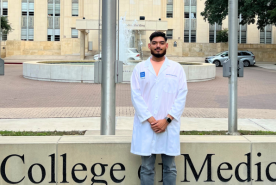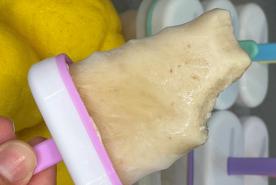Table of Contents
- How do I know if I have anemia?
- Why is it important to treat anemia?
- What is "iron deficiency anemia"?
- What causes iron deficiency anemia?
- Are there other causes of anemia?
- Are people on dialysis at risk for not getting enough iron?
- How is my iron level tested?
- How is anemia treated in people on dialysis?
- How will I know if my anemia is getting better?
- Tip: Keep records
You may be familiar with the term "anemia" because having anemia is common when you have chronic kidney disease (CKD). Anemia happens when you do not have enough red blood cells. In CKD, kidneys don't make enough of a hormone called erythropoietin (EPO), which your body needs to make red blood cells. Your body also needs iron to make red blood cells. When there is not enough EPO or iron, you make fewer red blood cells, and anemia develops. In kidney disease, anemia can happen even before the kidneys fail, and it is very common in people on dialysis.
How do I know if I have anemia?
Your doctor can tell if you have anemia by measuring the hemoglobin (Hb) in your blood. Hemoglobin carries oxygen to all body cells for energy. When you are on dialysis, your hemoglobin should be checked regularly.
Although not everyone has the same symptoms, anemia can cause you to:
- Have little energy for your daily activities
- Look pale
- Feel tired or weak
- Have cold hands and feet
- Be irritable
- Have brittle nails
- Have unusual cravings for odd things like ice or dirt
- Have a poor appetite
- Feel dizzy or have headaches
- Have trouble sleeping
- Feel short of breath
- Have trouble thinking clearly
- Have a rapid heartbeat
- Feel depressed or "down in the dumps"
- Have restless leg syndrome — an uncomfortable tingling or crawling feeling in your legs
What is "iron deficiency anemia"?
"Iron deficiency anemia" means anemia because of too little iron in the body. Iron is an important mineral needed for overall good health and healthy blood cells. Iron helps your body make hemoglobin, which is found in red blood cells. When there is not enough iron, red blood cells won't have enough hemoglobin to carry oxygen.
What causes iron deficiency anemia?
Iron is found in many foods, and diet is the major source of iron.
Besides not getting enough iron in the diet, other causes of iron deficiency anemia are:
- Blood loss from accidents, surgery, stomach ulcers, kidney or bladder tumors, cancer or polyps in the intestines or other causes
- Infection or inflammation in your body
- Diseases of the bowel that keep iron from being absorbed in the gut
Are there other causes of anemia?
Yes. Other causes of anemia include:
- Too little vitamin B12 or folic acid in your body
- Too little EPO
- Diseases like kidney disease, liver disease, HIV/AIDS, lupus (an autoimmune disease) or cancer
- Diseases that harm or destroy your blood cells, such as sickle cell disease
- Certain types of anemia can be inherited
Are people on dialysis at risk for not getting enough iron?
Yes. People on dialysis need extra iron because of:
- A dialysis diet low in iron: Many iron-rich foods like red meat and beans may be limited on a dialysis diet. Your dietitian can help you choose foods that are good sources of iron, vitamins and other minerals. Check with your dietitian before making any changes in your diet.
- Blood loss during hemodialysis: At the end of each hemodialysis treatment, a small amount of blood is usually left behind in the dialyzer (artificial kidney). This can be a source of iron loss over time. In fact, when you are on dialysis, you will probably need extra iron because you will be taking another anemia medicine, called ESA (see below), that uses up your iron. Your dialysis care team will do blood tests to find out if you have iron deficiency anemia and make the right plan of care for you. They will check your hemoglobin regularly to watch how well your anemia treatment is working.
Your dialysis team will also test your blood iron levels because iron helps your body make enough hemoglobin. Having enough iron helps you reach and stay in the recommended hemoglobin range.
How is my iron level tested?
Two important blood tests can tell if you have enough iron.
- Transferrin saturation (TSAT): TSAT level should be at least 20 percent.
- Ferritin (a form of iron that is stored in the body's tissues): Ferritin level should be at least 100 ng/mL if you are on peritoneal dialysis, and more than 200 ng/mL if you are on hemodialysis.
Your dialysis care team will test your iron levels regularly until you reach your hemoglobin target. After that, they will test it every 3 months if your hemoglobin is stable.
How is anemia treated in people on dialysis?
In people on dialysis, anemia is treated with:
- Drugs called erythropoiesis-stimulating agents (ESAs): ESAs replace the EPO that is low in people with kidney failure, so they can make red blood cells.
- Extra iron: Diet alone cannot supply enough iron to meet your needs. You will most likely need extra iron. In fact, once you start taking ESAs, you will make more red blood cells and your iron supply will be used up faster. ESA, iron therapy helps to:
- prevent iron deficiency
- lower the amount of ESA needed
- keep your hemoglobin within range.
You may wonder if it is possible to end up with too much iron. The use of ESAs helps reduce the build-up of iron. Your dialysis care team will test the iron level in your blood to make sure your iron level is right for the type of dialysis you are having.
The amount of iron you need and how you will receive it depends upon the type of dialysis you get:
- Peritoneal dialysis: you can get extra iron can taken orally as a supplement or given IV, "intravenous" or infusion into a vein.
- Hemodialysis: you can get extra iron as either IV iron, a large iron dose that is injected through the dialysis machine, or as a small iron dose that is part of the dialysis solution.
Iron is important in treating anemia. Without enough iron, ESAs are wasted and you will not reach your target hemoglobin.
How will I know if my anemia is getting better?
Generally, you will begin to feel better and more able to perform your daily activities. Your dialysis care team will check your hemoglobin, ferritin, and TSAT levels and perhaps other lab tests regularly. These test values tell how well you are doing. Your dose of ESAs and iron may need to be changed, depending on how you respond to your treatment.
If you are hospitalized, your anemia therapy should continue.
Tip: Keep records
Ask your doctor or your dialysis care team for the results of your hemoglobin, iron and other important tests. You can keep a record of these lab values to help you stay on target. The Dialysis Lab Log can help you do this. To obtain a copy, ask your dialysis care team or contact NKF Cares, our Patient Information Center.

















